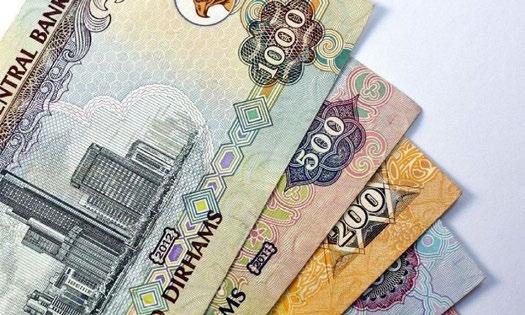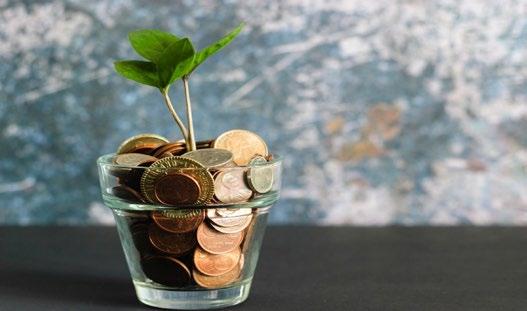
5 minute read
HOW TO SAVE MONEY ON YOUR EVERYDAY EXPENSES IN THE UAE
BY: JEFF EVANS
Living in a lavish country like the United Arab Emirates (UAE), can tempt us to spend our money on meaningless things. In a world where ‘trends’ keep changing, we often catch ourselves spending on items that we do not even want, need or use. Such actions lead us to not being able to save enough for other important needs or for future and often unforeseen expenses. For new educators to the UAE, it could be difficult to stick to a strict budget while dealing with; utility bills, children’s education, shopping, entertainment, vacations, etc. But what if we show you some ways in which you can save money while still being able to enjoy life in the UAE. Keep reading to learn how you can save money on your everyday expenses right here in the
Advertisement
UAE.
1. Wise Shopping Stick to a solid shopping list which contains only the necessary items you need. Fun fact: You are more likely to impulsively buy more things (even non-food items) when hungry.
So, eat before you go grocery shopping to stick to your shopping list! Buying in bulk at wholesale stores is also another option. Buy groceries that will last for a month or two, so that you do not need to spend on groceries every week. Compare prices at different stores and find out which store sells products that fit your budget. Check the receipts to see if the cashier has made any mistake while checking out your items, so that you are not paying extra unintentionally. A tip to save while shopping online is to make use of coupon codes. UAE is a leader, in the region, for online businesses such as Amazon, Namshi, Shein, etc. which as part of their product promotions, offer discounted coupons. Every budgeted discount redeemed, is a saving earned.
Do not be tempted to always buy the imported brands that you are familiar with. A trip to your local supermarket can be an adventure. Try finding local brands that you can grow to love. Buying locally produced goods will save you a ton on your grocery bill. Here is a top tip, instead of buying everything at a supermarket, try finding a local gift market. Gift markets, normally sell grocery items cheaper than supermarkets. Visiting a gift market once per month and stocking up on non-perishable items can save you quite a bit on your monthly grocery bill.
2. Keep an Eye on Your Bills As the weather in UAE keeps us switching on the air conditioner all the time, try to use it in the most effective way. Keeping the temperature at 24 degrees Celsius is the most optimal setting for the UAE weather. According to DEWA, 12pm to 6pm is the time that contributes to the rise in electricity charges. So, minimal usage of electronics at this time would help you save on your electricity bills. Switch off and unplug your appliances when not in use, to save energy. Every time you leave the house, make sure to switch off the light in the living room as well as the bedrooms. Pick your call and data packages according to the lowest amount of minutes and data, you need. Always make sure to check your call and data usage, before the bill is due, to avoid extra charges.
Saving energy and fuel in your car is also important in saving on your expenses. Turn off the engine while you are waiting or even roll down the windows, instead of using the air conditioner when the weather is good. Sudden and unnecessary breaking, while driving your vehicle also leads to fuel and energy wastage. 3. Pay Your Debts Before it’s Too Late Many of us have the habit of using our credit cards every time we shop. This debt keeps piling up, that sometimes it becomes difficult to repay on the due date. This is why it is important to keep track of your debts so that you do not get buried by mounting credit card debt. Paying debts as soon as possible, helps you to escape higher interest rates as well.
4. Build an Emergency Fund If there is one thing that we can be sure of, it is that at some point in time we will have an emergency. This could be a small or large emergency but if we are prepared then the effects will not be as severe. Putting aside an emergency fund is vital especially when living in another country, away from family and friends. We have less of a safety net when we live abroad, so try to have at least three months of living expenses saved up just in case you need it. This money should be accessible but do not put it in your regular current account as you may be tempted to use it on things that are not emergencies.

5. Set Limits and Boundaries Setting limits and boundaries might be one of the most important things you can do in saving money. You cannot go to all the social events, so only attend the events that fit into your budget. Know your spending limit before you go out. If you have a problem with self-control, try not to take your debit or credit cards with you, when you go out, instead, only bring with you the cash you have budgeted for, so that when it is all spent, you will not be tempted to keep on spending. In setting boundaries, learn to say ‘no’ to some of the invitations you receive. You do not need to attend every brunch, sometimes a quiet walk on the beach is all you need, to feel rejuvenated or maybe instead of going out and spending, you could stay home, watch a good movie or read a good book, both of which will cost you nothing.
Sometimes the hardest challenge in establishing thrift spending habits into our daily lives, is not about knowing what to do, but more to do with gathering the courage to implement the tips that are readily available to us, online.










